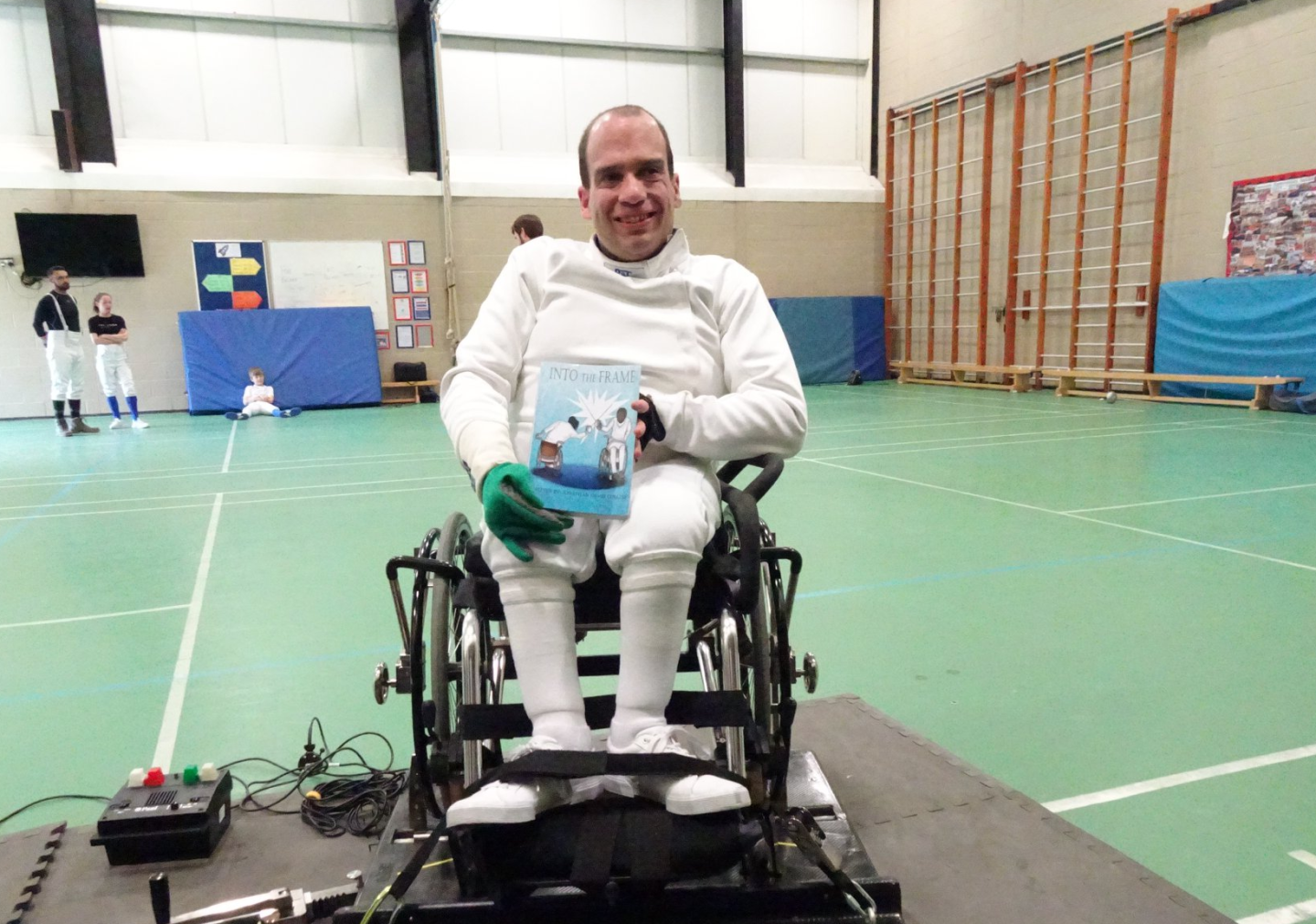Jonathan's inspiring journey into wheelchair fencing

Jonathan Collins from Selsey, West Sussex had never found the right sport for him until he tried wheelchair fencing.
Invited down to Chichester Fencing Club by a friend, he finally found the sport for him.
Since then, he has won medals at a national competition, spread the word on wheelchair fencing on social media and even written a book on the sport.
Learn about Jonathan’s journey into wheelchair fencing in his own words…
I am partially sighted, as well as being born with spina bifida and hydrocephalus. I cannot weight-bear so I am always sitting in a wheelchair.
I'd done taster sessions for a number of sports, including Boccia, but they were many miles away from me and just didn't take my fancy.
I was told about wheelchair fencing by a friend of mine who went to the local club, 10 miles away from where I lived.
She was a member and told me all about it because she knew that I had been looking for a sport for a long time.
At Chichester Fencing Club, I met Viv Mills (a GB wheelchair fencer) and was introduced to wheelchair fencing for the first time. I just got hooked and really enjoyed it.
We are the only two wheelchair fencers at the club. Sometimes we are able to fence with the non-disabled fencers, who sit on chairs whilst we sit on our wheelchairs.
We do our warm-up with foam swords, running up and down and smacking each other whilst trying not to be hit before we get into the fencing proper!
We then put the rest of our kit on and start training, doing the exercises she shows me all the different techniques.
In 2018, I took part in the British Disability Fencing Novice Challenge, which was a sub competition to the British Disability Fencing National Championships. I won joint bronze in the foil competition, the smallest weapon of all most fencers start with, and gold in the sabre competition, which requires more slashing, as opposed to poking, and sees fighters wear an electrical jacket (called a lame) for target area
It made me feel a whole lot better because that was the first competition I had ever entered. I was thinking ‘Oh my god, how am I going to do?’, and then it turned out really well.
Soon after starting the sport, I was contacted by a published author from Wales who had written a book on amputee cycling and contacted me through Facebook, as she had seen one of my videos and asked if I wanted to write a book about wheelchair fencing.
It tells the reader about the clothes, the equipment, the general rules and the history of the swords we use. Also included are stories from a number of wheelchair fencers and Paralympians from across the globe.
I have my own social media accounts, Facebook, Twitter, Instagram and YouTube, that I use to promote wheelchair fencing. I keep people updated, as much as I can, to support our GB wheelchair fencers plus other wheelchair fencers across the world to tell people how they are doing.
I don't think until you really get into the sport that you realise how cool it actually is. Obviously, I am biased but I think it's a sport that the public should be made more aware of.
I would definitely say, if you have the opportunity, try it.
Most of the fencing clubs I've spoken to, certainly across Britain and the world, will adapt to it.
I'd say if you haven't had the chance to try it, have a go. It's really worth it.
To find opportunities in fencing and other sports where you live, use the Parasport Club Finder.